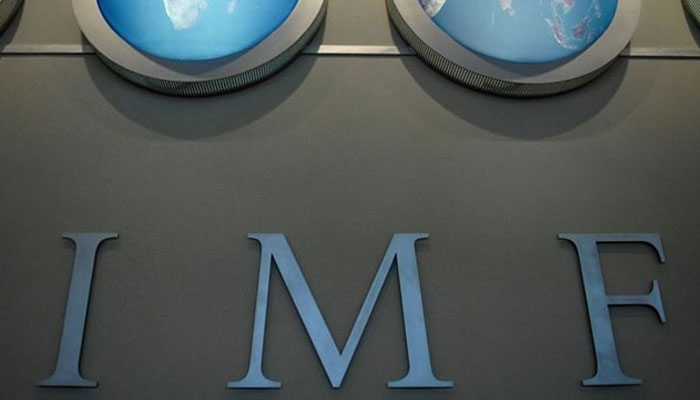Commitment to hike gas, power tariffs: Highest-level political undertaking paves way for agreement with IMF
ISLAMABAD: Pakistan has submitted its revised fiscal plan for the current fiscal and agreed to get approved a new mechanism for hiking power and gas tariffs paving the way for striking the staff-level agreement with the IMF.
Top government official disclosed on Friday that the highest- level political commitment and submission of the revised fiscal plan to determine power and gas tariff and moving towards reducing circular debt paved the way for striking of staff-level agreement with the IMF on successful completion of the second review under $6 billion Extended Fund Facility (EFF).
There was an agreement with the IMF that the Ministry of Power would propose a revision to the mechanism for determining of tariff to the Council of Common Interest (CCI) for hiking average tariff and curtailing the pace of piling up of the circular debt. The summary to this effect will be submitted before the CCI. On gas tariff, the tariff adjustment on July 1 had eliminated the arrears of the gas sector and now the gas tariff would be adjusted on the basis of OGRA’s mid-year decision on tariffs. According to revised fiscal plan for the current fiscal year submitted before the IMF revealed thatthe budget deficit was revised downward from 7.1 percent of GDP to 6.75 percent for the GDP with the projection to restrict the primary balance at Rs 260 billion for the current fiscal year ending on June 30, 2020.
The FBR’s target submitted by the government before the IMF was kept at Rs 4.8 trillion against the revised target of Rs 5.238 trillion. Earlier, on eve of the budget for 2019-20, the FBR’s target was envisaged at Rs 5.555 trillion. The Non-Tax Revenue target was revised upward from Rs 894 billion to Rs 1,351 billion as the target on account of State Bank of Pakistan profit was jacked up from Rs 406 billion to Rs 690 billion. The non-tax revenue target of Petroleum Levy (PL) was proposed to increase from Rs 216 billion to Rs 300 billion that clearly indicates that the government made a commitment with the IMF to keep the petroleum levy on the higher side for pocketing additional Rs 84 billion from the voiceless consumers. The POL prices in the international market had tumbled but the full benefits would not be passed on to the consumers in the coming months of the current fiscal year. However, the target of Gas Infrastructure Development Cess (GIDC) had slashed down from Rs 30 to Rs 20 billion for the current fiscal year.
On the expenditures side, the government has slashed its allocated amount for debt servicing on repayment of mark up on foreign and domestic loans from Rs 2,891 billion to Rs 2,700 billion mainly because of depreciation of rupee against dollar and re-profiling of short- term debt. The mark up on domestic loan-related payment was projected to decrease from Rs 2,532 billion to Rs 2,370 billion for the current fiscal year. The defense budget was hiked by Rs 100 billion from an allocated amount of Rs 1,152.5 billion to Rs 1,252 billion for the current fiscal year. The amount for subsidies was kept unchanged at Rs 271.5 billion for the current fiscal year.
Ironically, the development budget was proposed to be reduced both at the federal and provincial levels. The major cut in the development outlay was proposed at provincial levels as the development allocation was proposed to be cut down from Rs 1,081 billion to Rs 880 billion for the current fiscal year. Similarly, the federal Public Sector Development Program was slashed after excluding federally funded programs executed by the Finance Division to the tune of Rs 150 billion out of Rs 701 billion, the federal PSDP was kept at Rs 540 billion for the current fiscal year.
-
 Chris Hemsworth Gets Candid About Daughter’s Drawings That Inspired Several Of His Tattoos
Chris Hemsworth Gets Candid About Daughter’s Drawings That Inspired Several Of His Tattoos -
 UK To Experience Rare 'Blood Rain' On Tuesday Feb. 24, 2026: Know Every Detail
UK To Experience Rare 'Blood Rain' On Tuesday Feb. 24, 2026: Know Every Detail -
 Maria Shriver Shares Heartbreaking Reminder After Eric Dane's Death: 'Next Week Isn't Guaranteed'
Maria Shriver Shares Heartbreaking Reminder After Eric Dane's Death: 'Next Week Isn't Guaranteed' -
 Andrew Mountbatten Windsor Gets New Moniker After Losing ‘Prince’ Title
Andrew Mountbatten Windsor Gets New Moniker After Losing ‘Prince’ Title -
 Jack Black Shares Unseen Moments With Tanya Haden: 'My Love'
Jack Black Shares Unseen Moments With Tanya Haden: 'My Love' -
 Shamed Andrew Made Taxpayers Fund Personal ‘massages’
Shamed Andrew Made Taxpayers Fund Personal ‘massages’ -
 What Could Be Nick Reiner's Fate After Pleading Not Guilty Parents’ Murder Case?
What Could Be Nick Reiner's Fate After Pleading Not Guilty Parents’ Murder Case? -
 Princess Kate Talks About 'hard Conversations' With Kids Amid Andrew Drama
Princess Kate Talks About 'hard Conversations' With Kids Amid Andrew Drama -
 Prince William Mocked For Being ‘most Reluctant’ King-in-waiting
Prince William Mocked For Being ‘most Reluctant’ King-in-waiting -
 Prince William Makes Rare Admission After Andrew Arrest
Prince William Makes Rare Admission After Andrew Arrest -
 ‘Got A Lot Of People Gunning For Me’: Trump Makes First Comments On Mar-a-Lago Intruder
‘Got A Lot Of People Gunning For Me’: Trump Makes First Comments On Mar-a-Lago Intruder -
 What Countries Have A Say In Andrew Removal From Line Of Succession?
What Countries Have A Say In Andrew Removal From Line Of Succession? -
 How Did Luci4 Die? Police Probes 'BodyPartz' Sudden 'suspicious' Death
How Did Luci4 Die? Police Probes 'BodyPartz' Sudden 'suspicious' Death -
 King Charles Criticized By Princess Anne Over Andrew Drama
King Charles Criticized By Princess Anne Over Andrew Drama -
 Kelly Osbourne Hits Back At 'absolutely Devastating' Body Shaming Comments
Kelly Osbourne Hits Back At 'absolutely Devastating' Body Shaming Comments -
 Hailee Steinfeld Details Preparations Ahead Of Welcoming First Kid With Josh Allen
Hailee Steinfeld Details Preparations Ahead Of Welcoming First Kid With Josh Allen




